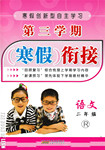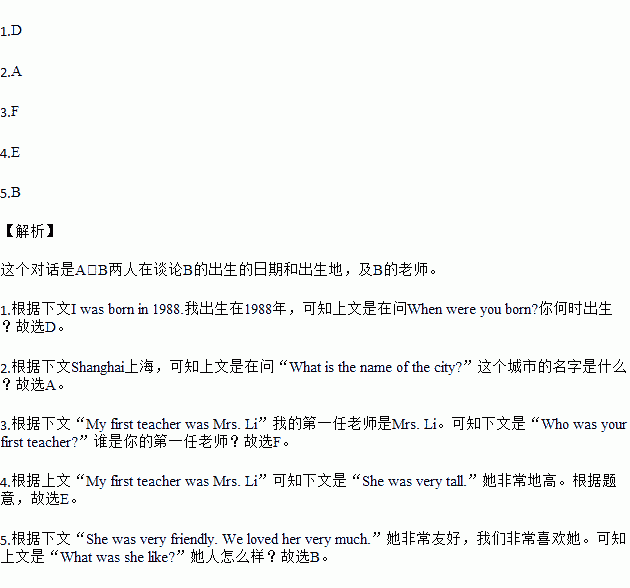题目内容
补全对话,每空一词
A. What is the name of the city?
B. What was she like?
C. How old was she?
D. When were you born?
E. She was very tall.
F. Who was your first teacher?
A: 1.
B: I was born in 1988.
A: Where were you born?
B: I was born in a big city.
A: 2.
B: Shanghai.
A: 3.
B: My first teacher was Mrs. Li. 4.
A: 5.
B: She was very friendly. We loved her very much.
练习册系列答案
 寒假创新型自主学习第三学期寒假衔接系列答案
寒假创新型自主学习第三学期寒假衔接系列答案
相关题目

